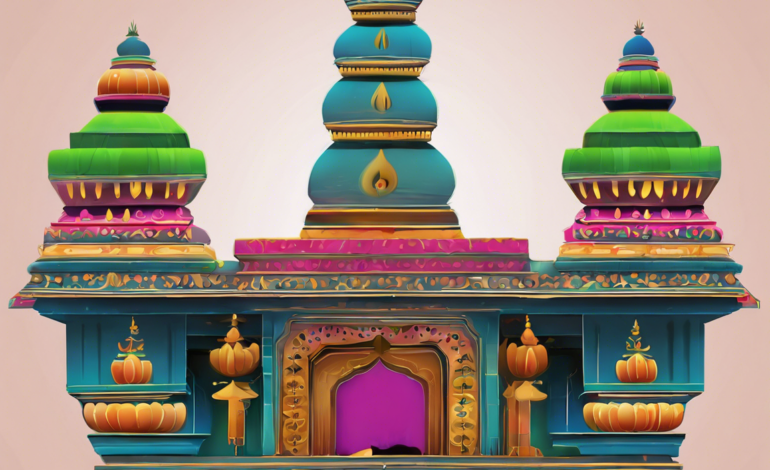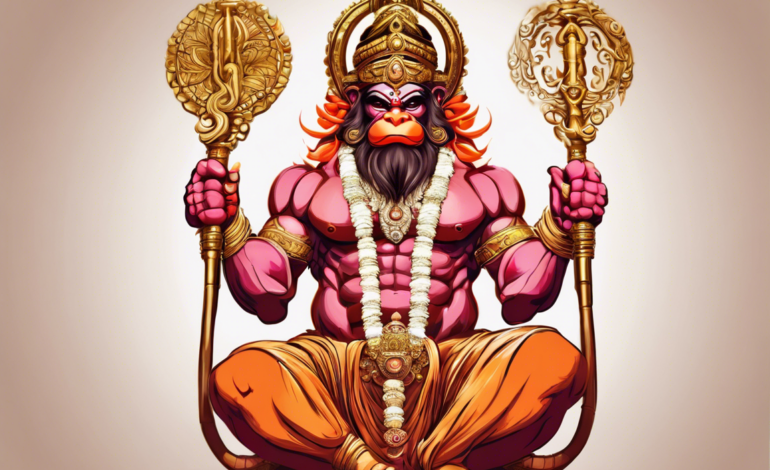Unraveling the Mysteries of Mehandipur Balaji: A Spiritual Journey

Mehandipur Balaji is a renowned temple dedicated to Lord Hanuman, situated in the town of Mehandipur in the Indian state of Rajasthan. This ancient temple is shrouded in myths, legends, and spiritual significance, attracting devotees from far and wide seeking solace, spiritual healing, and blessings. The unique rituals, practices, and beliefs associated with Mehandipur Balaji make it a fascinating destination for spiritual seekers and curious visitors alike.
History and Legends
The history of Mehandipur Balaji dates back centuries, with various myths and legends surrounding its origins. One popular belief is that the temple was established to exorcise evil spirits and cure people suffering from supernatural afflictions. It is said that Lord Hanuman himself appeared in the dreams of the local priest, instructing him to build a temple at the site to help those tormented by malevolent forces. Another legend tells the story of a series of miraculous events that led to the discovery of the idol of Lord Balaji in the nearby wilderness, prompting the construction of the temple.
The Mystical Rituals
The rituals and practices followed at Mehandipur Balaji are unlike those seen at most other temples. The temple is famous for its exorcism rituals, where devotees believe that evil spirits possess them and seek deliverance through the blessings of Lord Hanuman. The process involves loud chanting, ringing of bells, and the use of neem twigs to drive away negative energies. Many devotees claim to have experienced relief from their afflictions after participating in these rituals, adding to the mystique of the temple.
Spiritual Healing
Apart from exorcisms, Mehandipur Balaji is also known for its healing properties. It is believed that the water from the temple’s well, known as ‘Balaji ka paani’, has curative powers and can cure various ailments. Devotees often drink this water or use it to bathe as a form of spiritual cleansing and healing. The temple priests also offer special prayers and rituals for those seeking physical, emotional, or mental well-being, creating a sense of hope and faith among the visitors.
The Power of Faith
The atmosphere at Mehandipur Balaji is charged with devotion and faith, with devotees pouring their hearts out in prayer and seeking the blessings of the deity. Many people visit the temple with specific requests or problems, hoping for divine intervention to overcome their challenges. The sense of community and shared belief in the power of faith create a unique environment that is both comforting and empowering for those seeking solace and support.
Pilgrimage and Devotion
Pilgrims from all walks of life visit Mehandipur Balaji to seek the blessings of Lord Hanuman and experience the spiritual energy of the temple. The journey to the temple is often seen as a form of devotion and commitment, with many devotees undertaking long and arduous trips to pay their respects to the deity. The act of pilgrimage itself is considered auspicious and is believed to purify the soul and bring spiritual merit to the pilgrim.
Preservation of Tradition
The rituals and practices at Mehandipur Balaji have been passed down through generations, preserving ancient traditions and beliefs that continue to hold significance in the lives of devotees. The temple serves as a cultural and spiritual hub where people come to connect with their roots, seek guidance from the divine, and partake in age-old rituals that have withstood the test of time. By maintaining these traditions, Mehandipur Balaji keeps alive a rich tapestry of spiritual practices that are integral to the fabric of Indian spirituality.
Embracing the Mysteries
In a world driven by logic and reason, places like Mehandipur Balaji stand out as mystical and enigmatic realms that defy easy explanation. The temple’s aura of mystery, its ancient rituals, and the inexplicable experiences of those who visit, all contribute to its allure as a site of spiritual intrigue. While some may approach it with skepticism, many find solace and meaning in the stories and traditions that have been cherished for centuries, embracing the mysteries of Mehandipur Balaji with an open heart and a spirit of wonder.
FAQ Section:
Q: What is the best time to visit Mehandipur Balaji?
A: The temple is open throughout the year, but it is believed that visiting on Tuesdays and Saturdays is especially auspicious.
Q: Are non-Hindus allowed to visit Mehandipur Balaji?
A: Yes, the temple is open to people of all faiths and backgrounds. Visitors are expected to respect the customs and traditions of the temple.
Q: Is it true that exorcisms are performed at Mehandipur Balaji?
A: Yes, the temple is known for its exorcism rituals, where devotees seek relief from afflictions believed to be caused by evil spirits.
Q: Can women visit Mehandipur Balaji during their menstrual cycle?
A: Women are traditionally not allowed to enter the inner sanctum of the temple or bathe in the temple tank during their menstrual period.
Q: How can one participate in the rituals at Mehandipur Balaji?
A: Visitors can join the rituals by following the instructions of the priests and actively participating in the chanting and offerings.
Q: Is photography allowed inside the temple premises?
A: Photography is usually not permitted inside the temple out of respect for the religious sentiments of the devotees.
Q: What are some nearby attractions to visit along with Mehandipur Balaji?
A: Some nearby places of interest include the historic town of Karauli, the Kaila Devi Temple, and the Bandikui railway station.
Q: How can one reach Mehandipur Balaji by public transportation?
A: The nearest railway station is in Dausa, about 50 km away. Buses and taxis are available from Dausa to reach Mehandipur Balaji.
Q: Are there any accommodations available for overnight stays near the temple?
A: Yes, there are guest houses and lodges in Mehandipur town that offer simple and affordable accommodation for pilgrims and visitors.
Q: What are some dos and don’ts to keep in mind while visiting Mehandipur Balaji?
A: Visitors are advised to dress modestly, maintain silence inside the temple, avoid consuming alcohol or non-vegetarian food, and show respect towards the religious practices observed at the temple.





